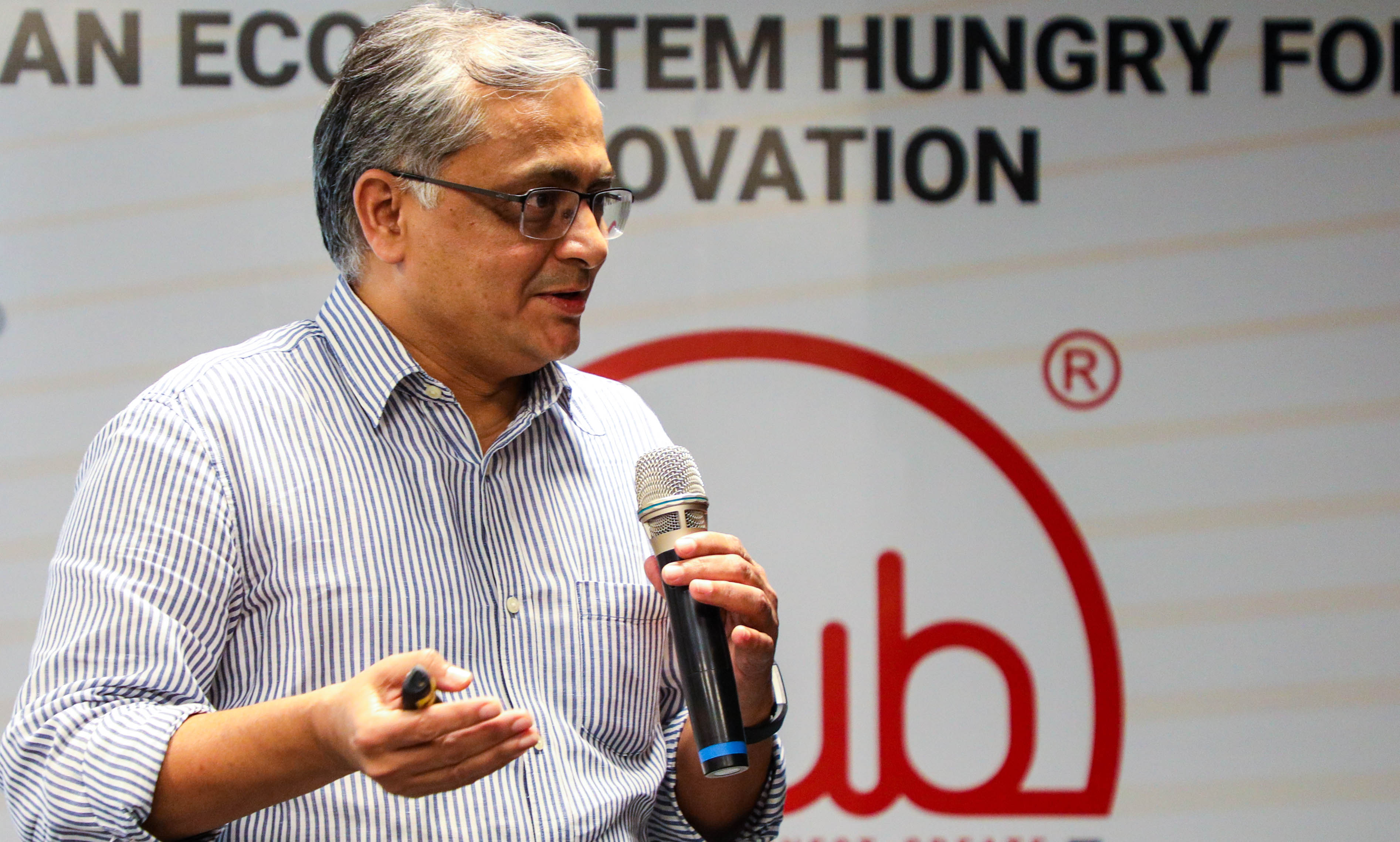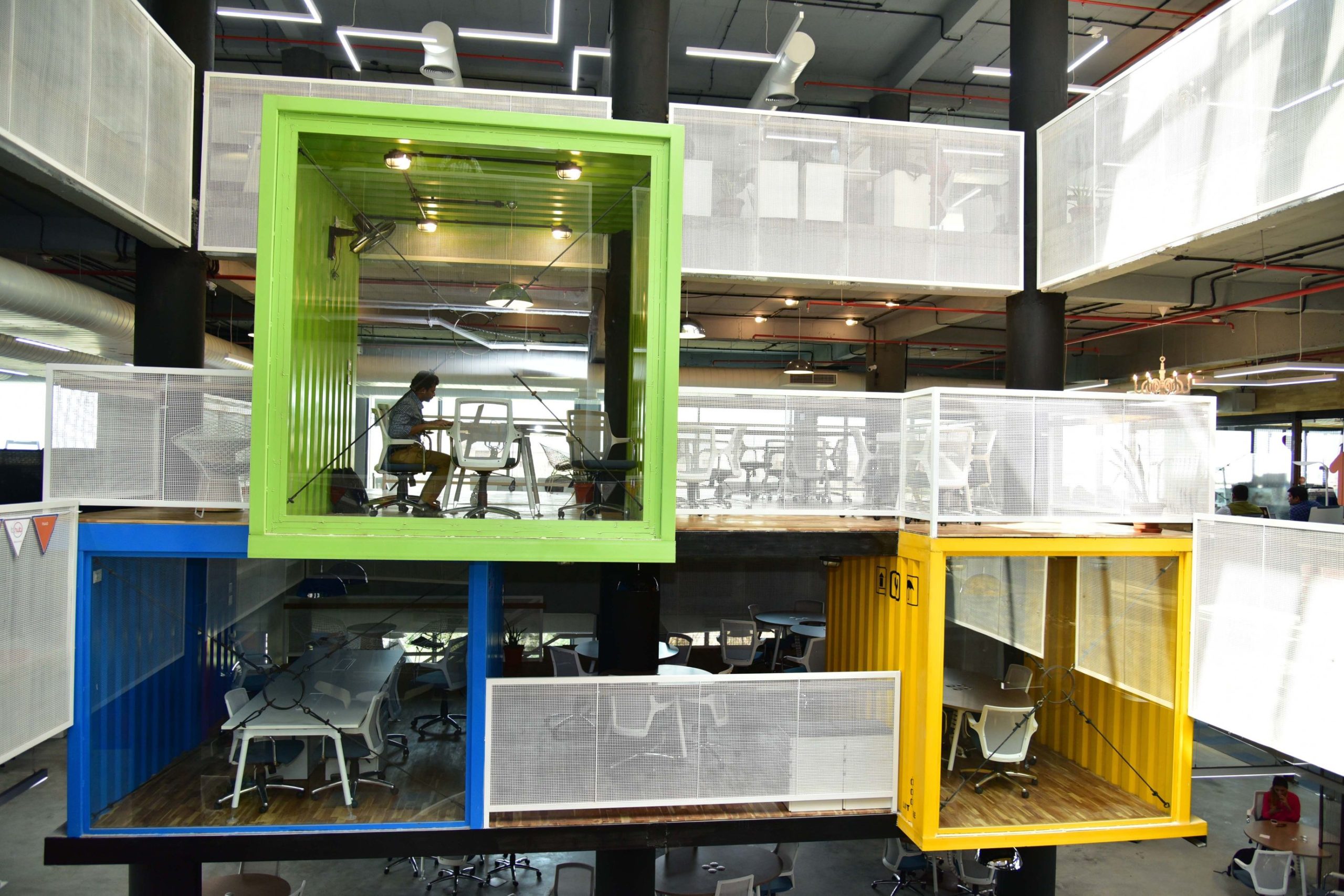Ravi Narayanan, CEO, T-Hub, an incubator for Startups in Hyderabad, Telegana, takes us through the organisation’s contribution the Startup community and its future plans.

Based in Hyderabad, T-Hub was set up to enable and empower an ecosystem that is hungry for innovation. It leads this ecosystem that powers next generation products and new business models. It uses the Triple Helix model of innovation based on interaction and collaboration between industry, academia and the government. Incorporated in 2015, it has provided over 1100 national and international startups with access to better technology, talent, mentors, customers, corporates, investors and government agencies. T-Hub also provides thought leadership for Telangana and other state and central government organisations to build innovation ecosystems.
So far, over 450 startups have been incubated at T-Hub. Currently, there are more than 170 startups working in T-Hub. T-Hub has multiple partnerships with the leading corporates globally, such as HDFC, BOEING, HSBC, Facebook, OTIS, YES Bank, MERCK, amongst several others. It has an international network with Israel, France, Canada, Australia and Singapore, and continues to expand this network hosting many international events held in Hyderabad.
Talking about this model, Ravi Narayanan, CEO of T-Hub says, “This model has not been put together before, either in India or outside the country. And that’s what attracted me to this. It is a pioneering effort in India to build an entire innovation ecosystem from ground up. That not only benefits startups but multiple others in the innovation space that get to collaborate with startups.” Startups, according to Narayanan, are the most nimble and most aggressive entity that carry innovation to various places and make themselves successful in this journey. But they cannot do this themselves. They need help of corporate partners and government and other institutions to make this happen. That’s how we have created this innovation ecosystem.
In this interview with Smart CEO, Ravi Narayanan, CEO, T-Hub takes us through the organisation’s contributions to the startup community and its future plans.
Three years ago, there were 400 startups. Currently, there are more than 2500 startups. Growth of 6 to 7 times in a short span. The maturity of Startups is also hitting new levels.
As the CEO of T-Hub, what are your top 5 responsibilities and how do you plan to implement them?
I am responsible for bringing an innovation ecosystem together in the state of Telegana, centered in Hyderabad. This requires me to work with the government both State and Central, research institutions, almost 41 institutions of national repute in Hyderabad and work with academia and top educational institutions and bringing them to work with innovators and innovation ecosystem is another responsibility. This apart, I also need to bring investors to fund this whole innovation activity. I also have to ensure that the startups have one place to go to; during their early days, middle of the journey or when they are looking at scaling globally. I am responsible for creating supplier innovation through startups and research labs and demand for these innovation from the Government and Corporations.
How does T-Hub aid the startup community?
Here are two ways we are doing this. One, we directly work with startups and we have different programs for them – incubation, acceleration and scaling programs. And they will be directly encouraged by our process and mentors assigned to them.
We are also offering the curriculum and know-how to sister institutions in Telengana. We are doing capacity building so that other startups also benefit from us indirectly through the work that we do with institutions that they are a part of.
We also create demand for startups by talking to Government and corporations and encourage them to work with startups.
T-Hub recently launched T-Angel, a three-month investment acceleration program, a joint venture with the Telangana state government. It will be executed by T-Hub and online investment platform, LetsVenture. The program is the first in a series of funding focused programs by T-Hub, and about 30 startups with solutions in healthcare, real estate, entertainment, sports, education, and finance will be shortlisted.
As the next step of maturity in this ecosystem, we are planning to put together T- Fund next year, so that we can start investing in companies at seed level. This will be anywhere to the tune of Rs. 100 crore to Rs. 200 crore.
We also have Lab 32, which we started two years back. It is a six-month-long comprehensive incubation program designed for early-stage technology product startups. In 2018, 70+ startups were selected for the program, and for the second batch of Lab32, T-Hub selected 45 cutting edge technology startups. It is starting the third batch next month.
Do talk to us about T-Hub’s journey so far?
When T-Hub was put together there was no other model that we could emulate. No one was doing a well-rounded activity around innovation. Most were incubators or co-working space with a single dimensioned engagement models. When we put T-Hub together, it was not just for Startups, but also meant for Government Institutions and Corporations. In fact, we have Startups, teams of large corporates, including Defence PSU like Bharat Dynamics limited. It is a phenomenal mixing pot of all the different constituencies that need to come together.
We are creating demand for Startups, at the same time helping them evolve and scale. So from a co-working space we have evolved into a mixed space and now help them create practices and capacity building measures so that several different parts of the ecosystem can evolve faster.
What is T-Hub’s focus area?
Innovation, and within that we look at two verticals – Healthtech and Fintech. As far as Healthtech goes, Hyderabad has a large Biopharma sector and we are leveraging the natural ecosystem and helping Startups participate in that innovation ecosystem.
For Fintech, we have a large presence of Financial Services companies and Insurance companies. We are trying to get them to work closely with Startups so that we can build leading Fintech companies. In fact, we are one of the founding members of Hyderabad Fintech forum.
The two horizontals that we look at are AI and ML and Smart City and Smart Mobility.
Finally, we also focus on social impact Startups, especially those working with technology.
Where to from here?
We are moving into a larger space – 6 times larger than what we have currently. We aim to do a couple of things here. One, provide a much more robust mentoring capabilities and help people interact and benefit from each other. Two, help with investment capabilities in a much larger way by getting large VCs and PEs to participate in this ecosystem. Three, put Startups and the entire Hyderabad ecosystem on a global stage and internationalise things in a much larger way.
